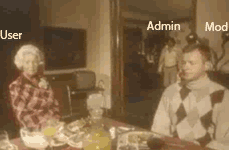Dead Set
Re: Dead Set
Important for some kind of emergency news and stuff. make sense.
Re: Dead Set
this article, while bashing a remake of a disaster survival tv show, details how the comms infrastructure would hold up in the UK
http://www.theregister.co.uk/2008/11/28 ... survivors/" onclick="window.open(this.href);return false;
http://www.theregister.co.uk/2008/11/28 ... survivors/" onclick="window.open(this.href);return false;
So as long as the zombies dont chew thru the phone cables, we should be able to phone grandma and tell her to stay in the closet under the stairs till help arrives
GSM base stations run on normal mains power, so will fail soon after the grid fails. Local batteries may allow an hour or two's grace and base stations in hospitals, or any place with its own generated power, will last as long as the local power does. However, the GSM standard is based on centralised control - the connections to which could easily disappear once the national power grid goes down.
Not that most of us will be able to make a call anyway: in an emergency the government will likely invoke ACCOLC (Access Overload Control), which limits outgoing mobile calls to those registered with the network operators by government agencies.
Fixed infrastructure should fare much better. Normal phones receive power down the phone line from the local exchange, and those automatically switch to batteries and/or generators, and should be operational for 14 days after the national grid disappears

Re: Dead Set
Hehe fair enough. But...they couldn't use the landline in Deadset.Del wrote:this article, while bashing a remake of a disaster survival tv show, details how the comms infrastructure would hold up in the UK
http://www.theregister.co.uk/2008/11/28 ... survivors/" onclick="window.open(this.href);return false;So as long as the zombies dont chew thru the phone cables, we should be able to phone grandma and tell her to stay in the closet under the stairs till help arrives
GSM base stations run on normal mains power, so will fail soon after the grid fails. Local batteries may allow an hour or two's grace and base stations in hospitals, or any place with its own generated power, will last as long as the local power does. However, the GSM standard is based on centralised control - the connections to which could easily disappear once the national power grid goes down.
Not that most of us will be able to make a call anyway: in an emergency the government will likely invoke ACCOLC (Access Overload Control), which limits outgoing mobile calls to those registered with the network operators by government agencies.
Fixed infrastructure should fare much better. Normal phones receive power down the phone line from the local exchange, and those automatically switch to batteries and/or generators, and should be operational for 14 days after the national grid disappears
I'm nit picking, I'll stop. Like I said, Charlie Brooker has done an excellent job with it.
"Hey actually Jonnywhy is right" - AngryWolf
"I agree with Jonnywhy" - Supernova
"Jonnywhy you're about as useful as a ashtray on a motor bike!" - Fester
"I agree with Jonnywhy" - Supernova
"Jonnywhy you're about as useful as a ashtray on a motor bike!" - Fester


